Step 1 of
Curiosity
You tell your team about a new idea you’ve had for attracting customers to the STORCH-Profishop. Only some of your colleagues like the idea. Although your market analysis has shown there would be strong competitive advantages, the idea would be difficult to execute and take quite some time. What do you do in this situation?
Try something new without the full support of my team? No thanks. Anyway, maybe my idea simply isn’t good. I drop the project.
Obviously, we’d all like the full support of our entire team. At Storch-Ciret, however, we don’t let ourselves be discouraged when everybody is not immediately onboard. We’re curious and we give new ideas a go even if the execution proves more difficult or protracted than originally expected. In this situation, we’d bring together all those in the team who like the idea and see if we could jointly find a way to make it happen. We’d use our new and improved concept to convince the whole team – including the sceptics. This is the only way we can ensure our continuous development.
I take a second look at the idea and give it more thought. But I only pursue it if I can think of a simpler way to execute it.
At Storch-Ciret, we’d take another look at the idea as well. But we’d also go a step further: in such a situation, we’d look for the support of the team members who like the idea. After all, together and with a better execution plan, we’d be more likely to convince even those colleagues who are currently sceptical. We’re curious and we continue to pursue ideas even if the execution proves more difficult or protracted than originally expected – usually successfully so.
There was also agreement in the team and people who were keen on the idea. We’ll now work together on improving the execution concept so that we can win over even those colleagues who are currently sceptical.
That’s also how we’d go about this! We’re open to new things and develop creative, sustainable and farsighted ideas. Sometimes they may be more difficult or protracted to execute than originally expected, but we don’t let that stifle our curiosity. We look for support from our team and work together to find a viable solution that everyone can enthusiastically get behind.
The Storch-Ciret Group offers space for ideas – including yours!
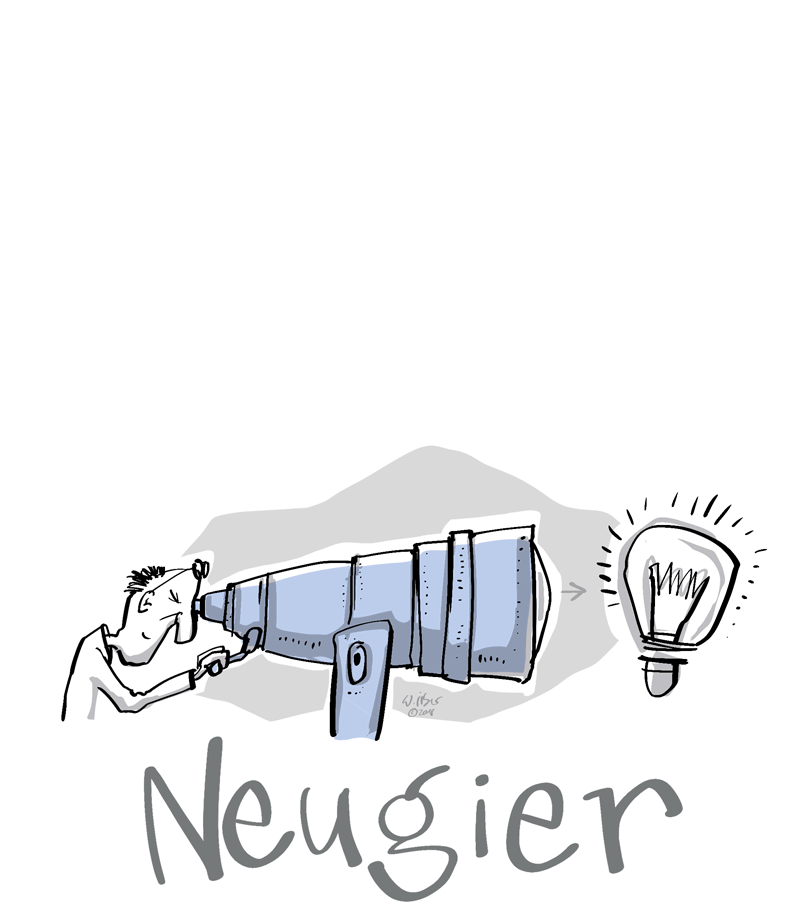
Curiosity
Colleagues who take part in Storch-Ciret’s in-house shadowing programme get to know entirely other parts of the company. You have the opportunity to take part in this programme. What do you decide?
I sign up for the programme and look forward to getting a view of the bigger picture. I’ll find out more about the company and meet new colleagues.
That’s the Storch-Ciret spirit! We’re curious by nature and this also includes looking beyond our own horizons. A change in perspective can provide valuable insights into the areas where we interface with other departments. We can use this knowledge to optimise our processes. We can also learn from each other and build our networks. Dialogue leads to collaboration, promotes creativity and results in solutions that nobody had previously thought of.
Participation in the programme would keep me from my work. I simply don’t have time for such programmes.
In principle, it makes sense to focus on your work rather than get distracted. However, we think it’s at least as important for us to also look beyond our own horizons. The associated change in perspective gives us valuable insights into the processes at the interfaces with other departments and enables us to optimise these. What’s more, we can also learn from each other and build our networks within the company.
I ask my team whether any other colleagues are intending to take part in the programme. If they are, I might consider it, otherwise I won’t.
We think it’s important to take time to look beyond our horizons. The associated change in perspective gives us valuable insights into the processes at the interfaces with other departments and enables us to optimise these. We can learn from each other while building our networks. Networking and dialogue play a significant role in our culture. Therefore, we wouldn’t base our decision on whether to participate in the in-house shadowing programme on whether anyone else from the team would also be taking part.

Passion
Your supervisor wants to put you in charge of a project. You’ve never done anything like this before. What do you do?
I take charge of the project and choose a suitable course from the company’s training programme as support.
Your decision is fully in keeping with our corporate culture! When we say that ‘passion’ is one of our core values, we mean, among other things, that we foster growth and training. And the best way to grow is to take on challenging new tasks. We provide the training needed to support this as a matter of course. At the same time, however, we expect employees to show some degree of initiative in making use of the company’s many training offerings, in-house courses and coaching opportunities.
I take charge of the project, but ask if I can manage it together with more experienced colleagues.
First and foremost, it’s great that you would agree to take on this new task. When we say that ‘passion’ is one of our values, we mean, among other things, that growth and training are very important to us. The best way to grow is to take on challenging new tasks. In this kind of situation, however, we’d love to see you have the courage to take on the task yourself: maybe it’s still a step too far for you at this time, but don’t worry, you’d grow into it. Of course, you could always turn to experienced colleagues for advice. We also offer a wide selection of training courses that support your growth.
I decline to take charge of the project, pointing out that I’ve never done anything like that. Perhaps I could take charge of a project at some point in the future.
At times, it makes sense to exercise a dose of caution when faced with new and challenging tasks, as we don’t want to bite off more than we can chew. However, we also like our colleagues to have that bit of courage needed to take on challenges. When we say that ‘passion’ is one of our values, we mean, among other things, that growth and training are very important to us. The best way to grow is to take on challenging new tasks. Therefore, we would accept the task and look for the right training course among the many offered by Storch-Ciret.
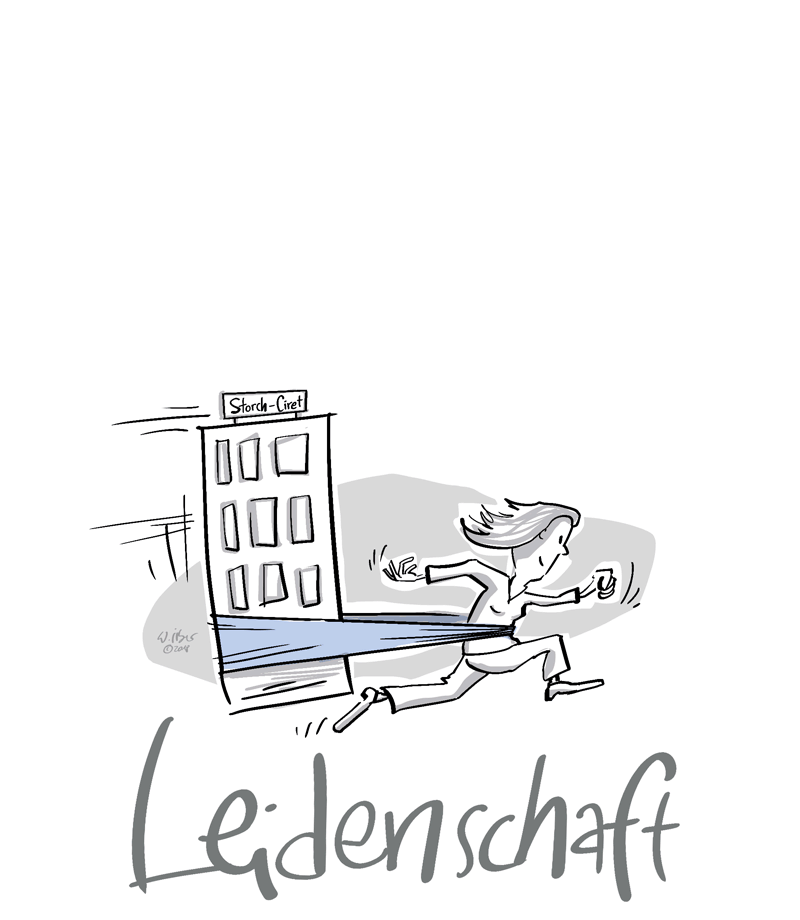
Passion
The team is preparing for a very important trade fair that will take place next week. A colleague suggests a new initiative that is likely to attract a lot more customers to the Storch-Ciret stand than in previous years. However, you’d have to work much harder than usual in the coming days – and postpone a gathering with friends. How do you respond?
I explain to my colleague that I really like her idea. However, I won’t be able to help her to plan the initiative because I don’t want to cancel my plans with my friends.
It’s important to keep appointments – and not just in friendships. On the other hand, our company value of ‘passion’ means that we are prepared to go the extra mile when special opportunities arise. A key trade fair for Storch-Ciret is just such an opportunity.
It’s important that we listen to ourselves and are mindful of our inner voice. Work-life balance also counts, no matter how dedicated we are. That’s a must if we are to maintain our passion in the long term. In the situation described, we would agree to our colleague’s proposal and take our foot off the pedal after the trade fair to ensure we have plenty of time for friends and family too.I think the initiative is great and I work a lot anyway. So I agree to my colleague’s suggestion. I can postpone my plans with my friends – they’re used to that from me anyway, so it’s no problem.
Your instant acceptance shows your commitment and passion. In order to maintain this passion in the long term, it’s important that we also listen to ourselves and are mindful of our inner voice. We’re dedicated, but still understand the importance of work-life balance. In relation to this specific situation: we would agree to the colleague’s suggestion but make sure we take our foot of the pedal again after the trade fair and don’t neglect our family and friends.
I agree to my colleague’s suggestion and postpone my plans with my friends until after the trade fair – when I’ll simply work a little less.
That’s exactly what we’d do! When we say that ‘passion’ is one of our values, we mean that we go the extra mile if it will advance the company. However, this doesn’t mean that we don’t look out for ourselves or our well-being. Dedication and work-life balance go hand in hand – this is a must if we are to maintain our passion in the long term.

Team Spirit
You and your team are working on optimising the marketing concept. Suddenly, you find a solution that everybody in the team is happy with. The decision to go ahead with this would be easily reversible and have only minor consequences. However, the decision also affects several interfacing functional areas where colleagues may raise objections. What do you propose that your team do?
I propose that we begin implementing the solution and then work on convincing the interfacing functional areas. That means we won’t waste any time.
When we make a decision, we also want things to happen. However, part of the desired effect is having all stakeholders contribute to the decision. That’s why we believe it is much more effective to involve as many people as possible in the decision-making process – that’s better than trying to get them on board after a decision has already been made. In terms of cross-functional collaboration, we consider team spirit a value that ensures our success and motivation.
I suggest initially involving all stakeholders in the decision. We should allow time for this before the implementation.
Exactly right – your strong team spirit is a good fit here! We prefer decisions that can be supported by as many people as possible. Of course, we also put our team spirit into practice in cross-functional collaboration as well. Although this may slow down the consultation process somewhat, it does help to motivate all stakeholders to support the decisions taken because they feel they have been heard and understood.
I appeal to our supervisors to make a decision on this. They are best placed to respond to any objec tions from the interfacing functional areas.
Letting supervisors decide based on the information gathered could be seen as giving in to the urge to cede responsibility with ‘permission’. Although we can understand this, it’s not in keeping with our company values. In this situation, your supervisor should ideally ask the team: “What do all of you in the team have to do to enable you to make this decision yourself – who will be affected and whom should you listen to?”. Accordingly, we would like the team to involve all of the functional areas concerned in the decision-making process and then make its own decision.
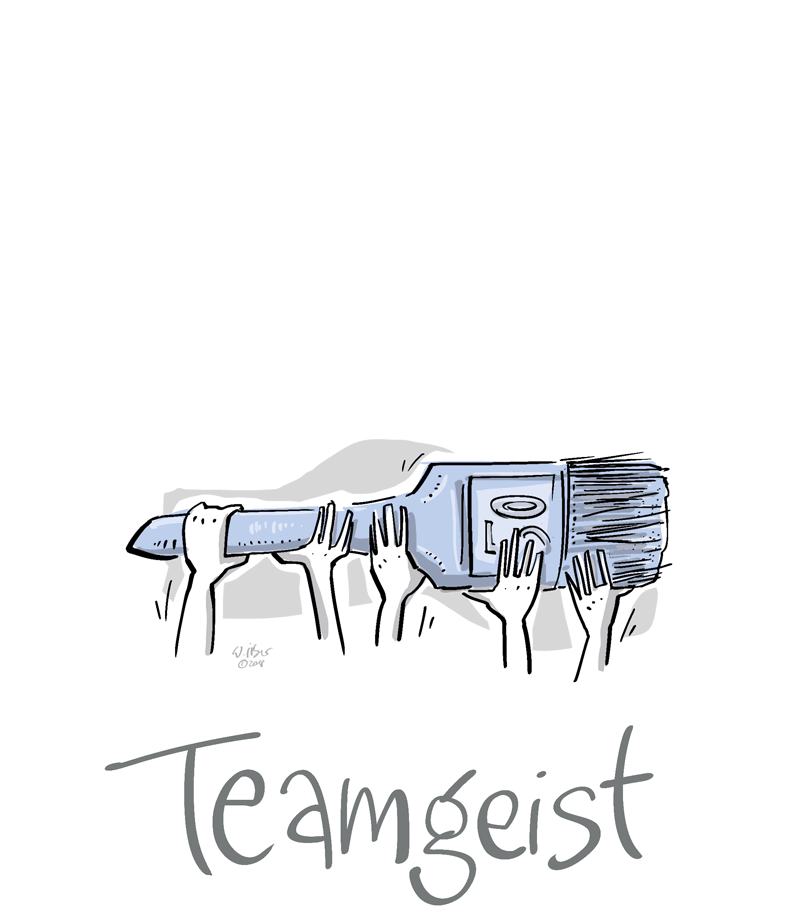
Team Spirit
A colleague did not work carefully on her part of a joint task. There are only a few hours to go before you have to present the results to your project manager. How do you respond?
I openly explain to the colleague which part of her work I find good and which part is problematic. I ask her to revise the problematic part and offer her my help so that we can get it done on time.
That’s a solution that fits with Storch-Ciret! Above all, we consider team spirit to mean that we give each other constructive feedback. At the same time, we help each other with our work. In this way, we can grow together as a team.
I make the necessary improvements to the part that she did not give due care to and undertake to speak to her about it the next time we have to work on a joint project.
It’s commendable that you want to present carefully prepared results to the project manager. Nevertheless, this isn’t the approach we would take. We consider team spirit to mean that we give each other feedback and help each other with our work. To provide constructive criticism, we would speak transparently and in a friendly manner with our colleague about what we find problematic in her work and, at the same time, offer her our help to fix it.
I suggest that everybody in the team presents their own part so that the supervisor can give my colleague appropriate feedback on her part.
It’s understandable that you do not want to be responsible for the poor quality of your colleague’s work. However, we would still approach this differently. At Storch-Ciret, we consider team spirit to mean that we give each other constructive feedback and help each other with our work. Therefore, we would say to the colleague in a friendly tone what we find problematic about her work and offer to help her so that we can achieve a good outcome together.

Sustainability
You are working on optimising capacity and resource utilisation in respect of logistics. There is the option of cost-effectively packaging the goods in film or having a cardboard box system developed for optimum utilisation. While this development would entail costs, it would actually end up being cheaper in the long run. How do you make your decision?
I prefer the film solution because otherwise shipping would be too expensive and the process would take too long.
It’s good that you’re considering the cost and time involved in shipping. At Storch-Ciret, however, long-term success is more significant than short-term results. As we are serious about our commitment to the environment, this is another reason why we would opt for the cardboard box system that would protect the environment and optimise our costs in the long term.
I choose the cardboard box system: this will reduce costs and protect the environment in the long run.
We totally agree! For us, sustainability means protecting the environment, even if that means higher costs in the short term. In the long term, the environmentally friendly solution is usually also the more economical option. Environmentally friendly and economical – there is no contradiction here and we prove this time and again because we don’t settle for anything less.
I initially choose the film because the shipping is cheaper that way, but keep in mind the option of the cardboard box system.
On the one hand, it’s good that you’re considering the cost of shipping. On the other hand, we would opt for the cardboard box system, if only because of its long-term advantages: for us, sustainability means protecting the environment and optimising our costs in the long term, even if that may be somewhat more expensive in the short term.
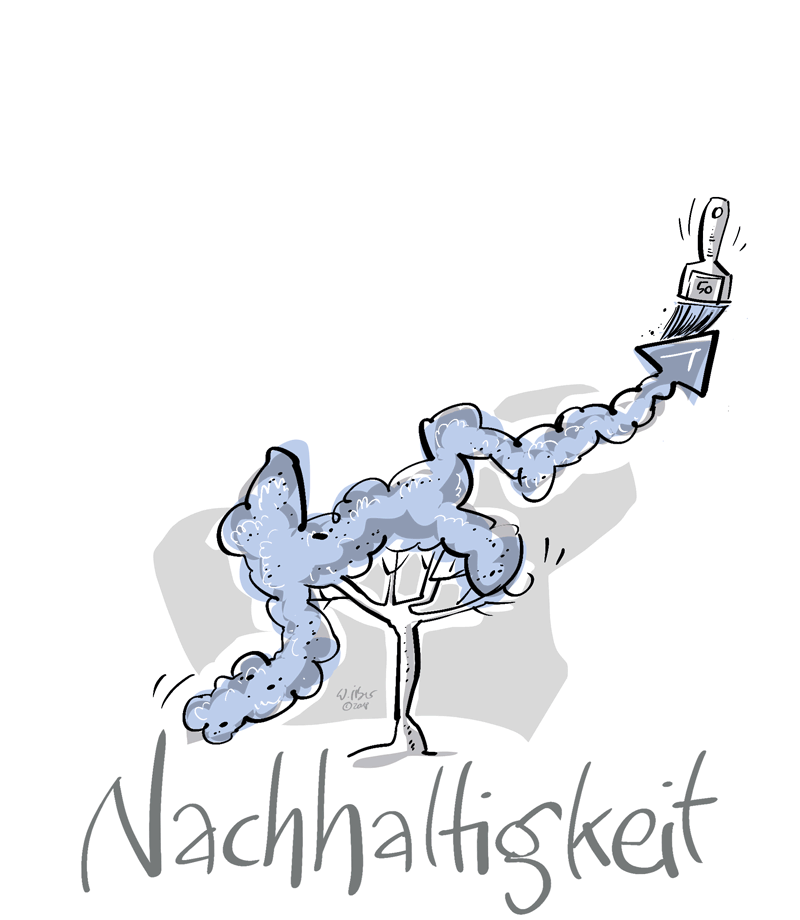
Sustainability
Your team is made up of people from all walks of life: different age groups and backgrounds, different attitudes, experience and temperaments. Sometimes you find it difficult to collaborate with your colleagues because they approach their work very differently to you. How do you deal with this situation?
In these situations, I speak to my colleague, ask why they approach things differently and explain my point of view. This allows us to learn from each other.
We would make the exact same choice as you because we see diversity as an opportunity for our company to develop. The differences and diversity found among all of the people at Storch-Ciret foster discussion, create dialogue and serve as the engine that drives creative ideas and new solutions. We become better together when we learn from each other – in this way, we benefit from everybody’s strengths.
I try to work on as many tasks as possible with the colleagues with whom I’m on the same wavelength. We’re simply more efficient this way.
We want to work efficiently and find solutions as quickly as possible – just like you. However, we’re even more convinced of the value of listening to different opinions and incorporating them when looking for solutions. This allows us to learn from each other and to benefit from everyone’s strengths, even if that means that things sometimes take a bit longer. The quick solution is usually not the better one! Diversity is the main driver of our success.
I adapt my approach to my colleagues because I want to be considerate.
It’s important in our corporate culture that we are considerate of our colleagues. However, we don’t see any contradiction in showing consideration and incorporating our own opinions and strategies. Quite the contrary – if we just go along with what others are doing, we simply end up making too many accommodations and cannot add value through our own individual strengths. That’s why we would speak to our colleagues in a friendly manner about their approach and ask why they do things that way. If we think there’s a better way, we would explain our point of view – and possibly we may even learn something and change our own approach.

Reliability
When organising your emails, you notice that you made a mistake while working on a customer order. Neither the customer nor anyone in the team seems to have noticed, even though the team frequently works on similar orders. What do you do?
I raise the matter with my team and we consider together how this could have happened and what should be done to avoid such mistakes in the future.
That’s exactly how we work at Storch-Ciret! Mistakes happen – even when we’re being very careful. It’s important to us that we address these mistakes openly. We see mistakes as an opportunity to learn – not just for ourselves, but within the team as a whole.
I consider how the mistake could have happened and how I might avoid it in the future, but see no reason to make a big fuss about it.
For starters, it’s a good idea to consider how the mistake could have happened and might be avoided in the future. However, we go one step further when dealing with mistakes. We consider that not only we, but also the team as a whole, might learn something from them. That’s why in this case we would raise the mistake with the team and consider how things could work better in the future.
I immediately notify my supervisor of the mistake. He will inform the customer and take the necessary steps.
Dealing openly with mistakes is certainly no bad thing. However, because we treat each other as equals at Storch-Ciret, we also take responsibility for our own actions. Instead of just notifying our supervisor of mistakes, therefore, we also do our best to find a solution: that’s why we raise the mistake with the team and consider together how we might improve the process in the future.
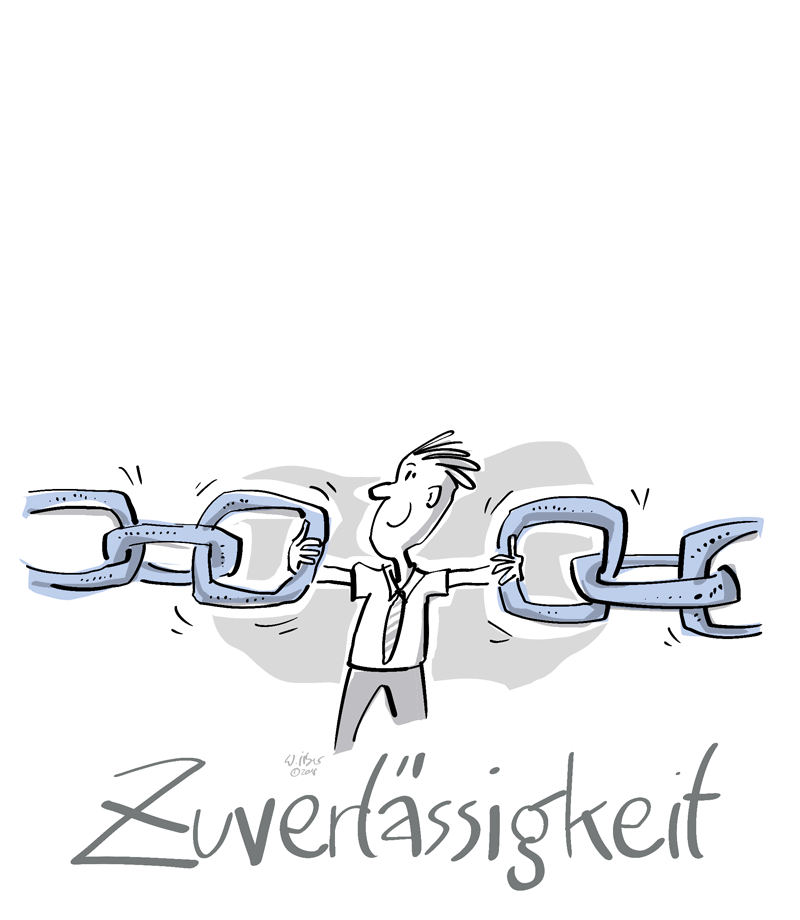
Reliability
You’ve agreed to conduct research for a colleague and promised him the results next week. While working on this, you discover that the research will take much longer than expected. How do you deal with this delay?
I submit what I’ve found to my colleague by the agreed date and don’t tell him that the research is incomplete. I don’t want him to have a bad impression of me.
It’s important to stick to deadlines and agreements. But sometimes that’s just not possible for certain reasons. In those instances, it’s equally as important for us to be open, sincere and trustworthy in our dealings with others. That’s why in this situation we’d tell our colleague what has happened and agree a new deadline. It is precisely our open error management culture that brings every colleague and therefore the company as a whole forwards.
I complete my research and give my colleague the findings later than agreed without getting into the reasons.
It’s important to us that we stick to agreements. Being punctual is part of this – ultimately, our colleagues should be able to rely on us. That’s why in this situation we would be honest with our colleague about what has happened and agree a new deadline.
I explain to my colleague that I miscalculated the time needed and I agree a new deadline with them for submitting my findings.
We think that’s exactly the right approach! We make binding agreements and meet our commitments on time and conscientiously. However, mistakes can still happen even if we’re careful. Therefore, if we miscalculate how much work is involved in something, for example, we address this openly because we are transparent, sincere and trustworthy in our dealings with each other. These are also aspects of reliability.

Thanks for taking part!
Now you have a sense of how we practice our values and collaborate. Do you think we’re a good fit?
Then add even more colour to the Storch-Ciret world with your talents and apply for a suitable position or simply send us a speculative application. We look forward to hearing from you!
You and us makes we. Storch-Ciret.
